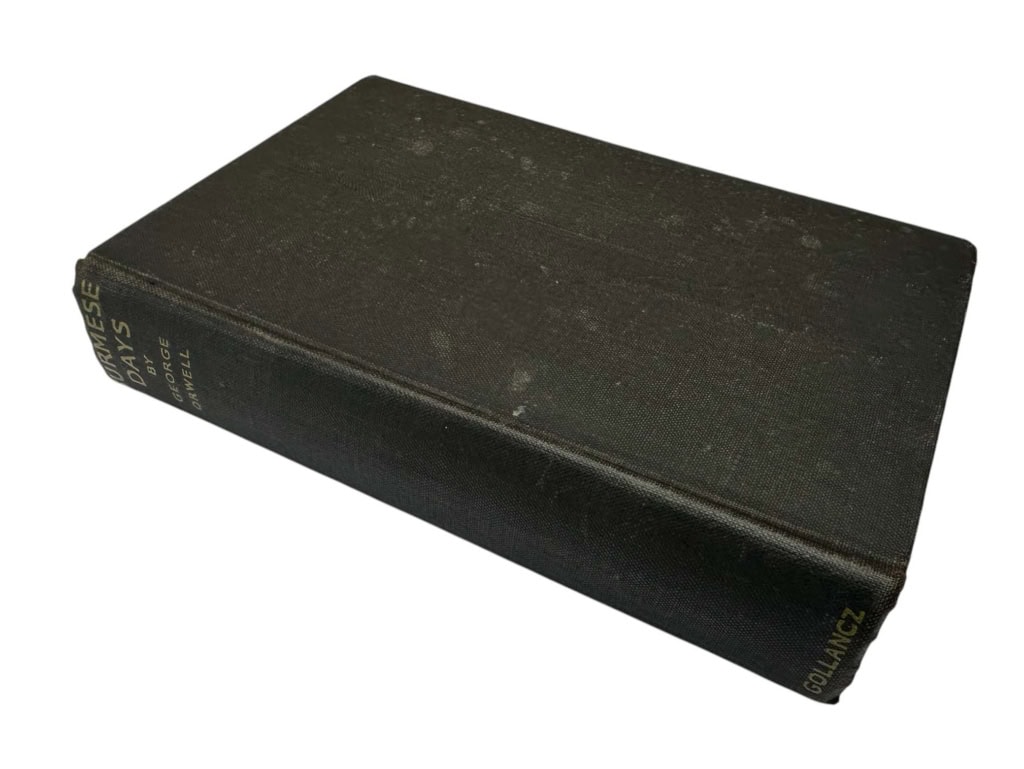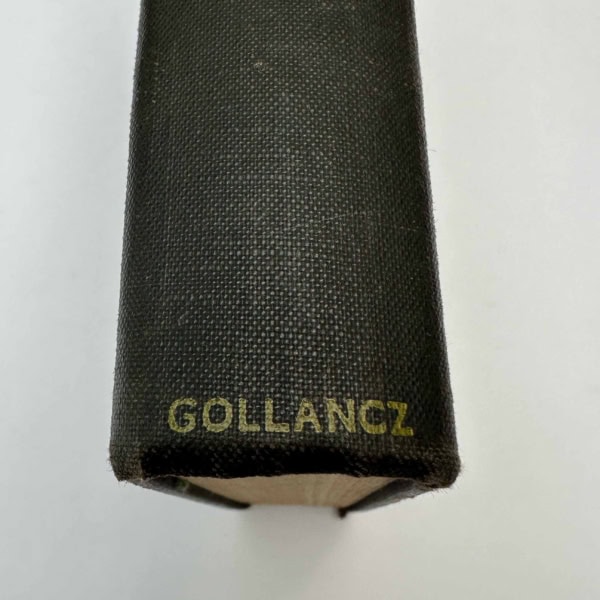George Orwell – Burmese Days – First Edition 1935
£1,250.00
A first edition, first printing of ‘Burmese Days’ published by Gollancz in 1935. A very good – spotting to the prelims and to the page edges – some light staining to the boards. No inscriptions – some wear to the corners.
Burmese Days is a novel by George Orwell, published in 1934. Set in 1920s British-occupied Burma, it offers a critique of British colonialism. The story revolves around John Flory, a disillusioned British timber merchant who befriends Dr. Veraswami, a local Indian doctor. Flory’s struggle against the racist attitudes of his fellow Europeans, particularly the bigoted U Po Kyin, forms the novel’s core conflict. Flory’s relationship with Elizabeth Lackersteen, a young Englishwoman, adds personal drama to his ethical dilemmas. The novel portrays the corrupt and oppressive nature of colonial rule, highlighting the moral and spiritual decay it causes in both the colonisers and the colonised. Orwell, drawing on his own experiences as a police officer in Burma, uses Burmese Days to explore themes of power, racism, and the impact of imperialism on individual lives.
(We don't keep all of our stock in the shop, so send us an email if you're planning a trip to see a particular author or book.)
- Description
Description
A first edition, first printing of ‘Burmese Days’ published by Gollancz in 1935. A very good – spotting to the prelims and to the page edges – some light staining to the boards. No inscriptions – some wear to the corners.
Burmese Days is a novel by George Orwell, published in 1934. Set in 1920s British-occupied Burma, it offers a critique of British colonialism. The story revolves around John Flory, a disillusioned British timber merchant who befriends Dr. Veraswami, a local Indian doctor. Flory’s struggle against the racist attitudes of his fellow Europeans, particularly the bigoted U Po Kyin, forms the novel’s core conflict. Flory’s relationship with Elizabeth Lackersteen, a young Englishwoman, adds personal drama to his ethical dilemmas. The novel portrays the corrupt and oppressive nature of colonial rule, highlighting the moral and spiritual decay it causes in both the colonisers and the colonised. Orwell, drawing on his own experiences as a police officer in Burma, uses Burmese Days to explore themes of power, racism, and the impact of imperialism on individual lives.













